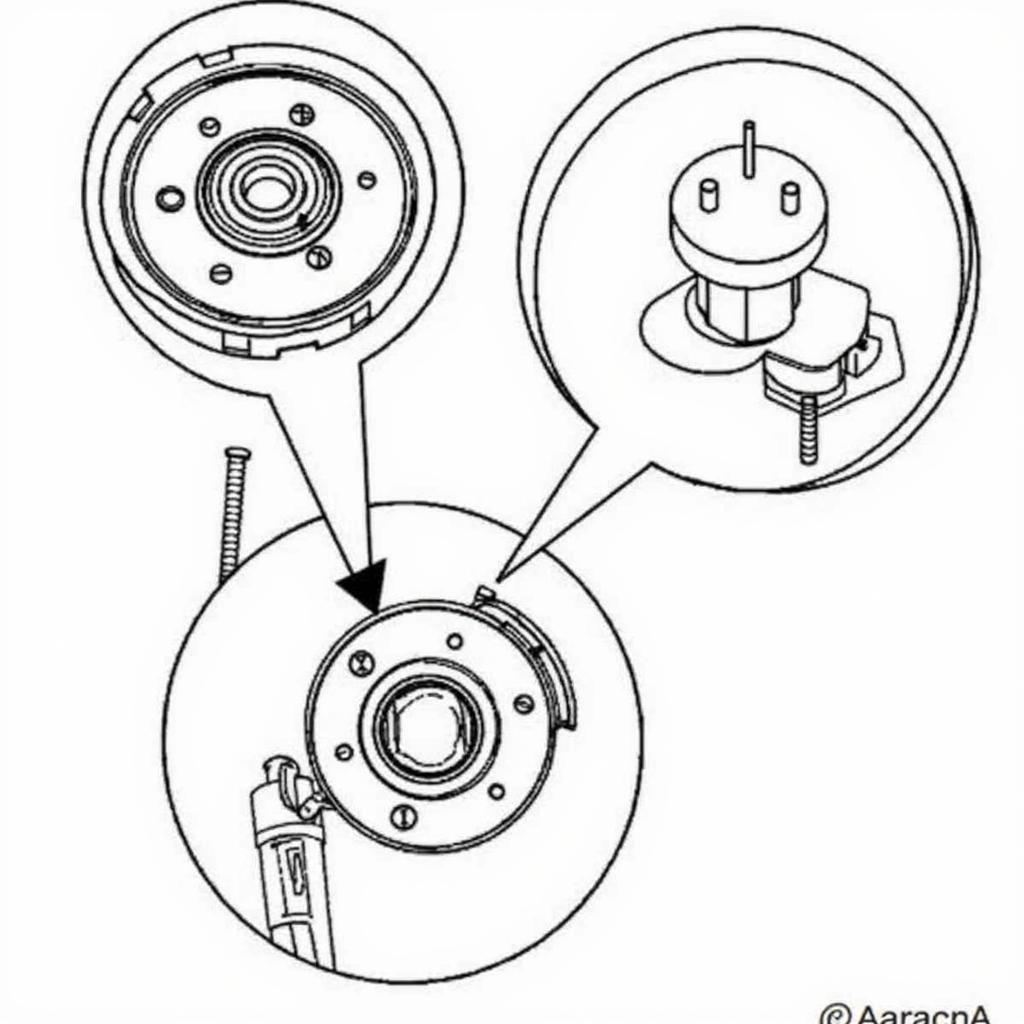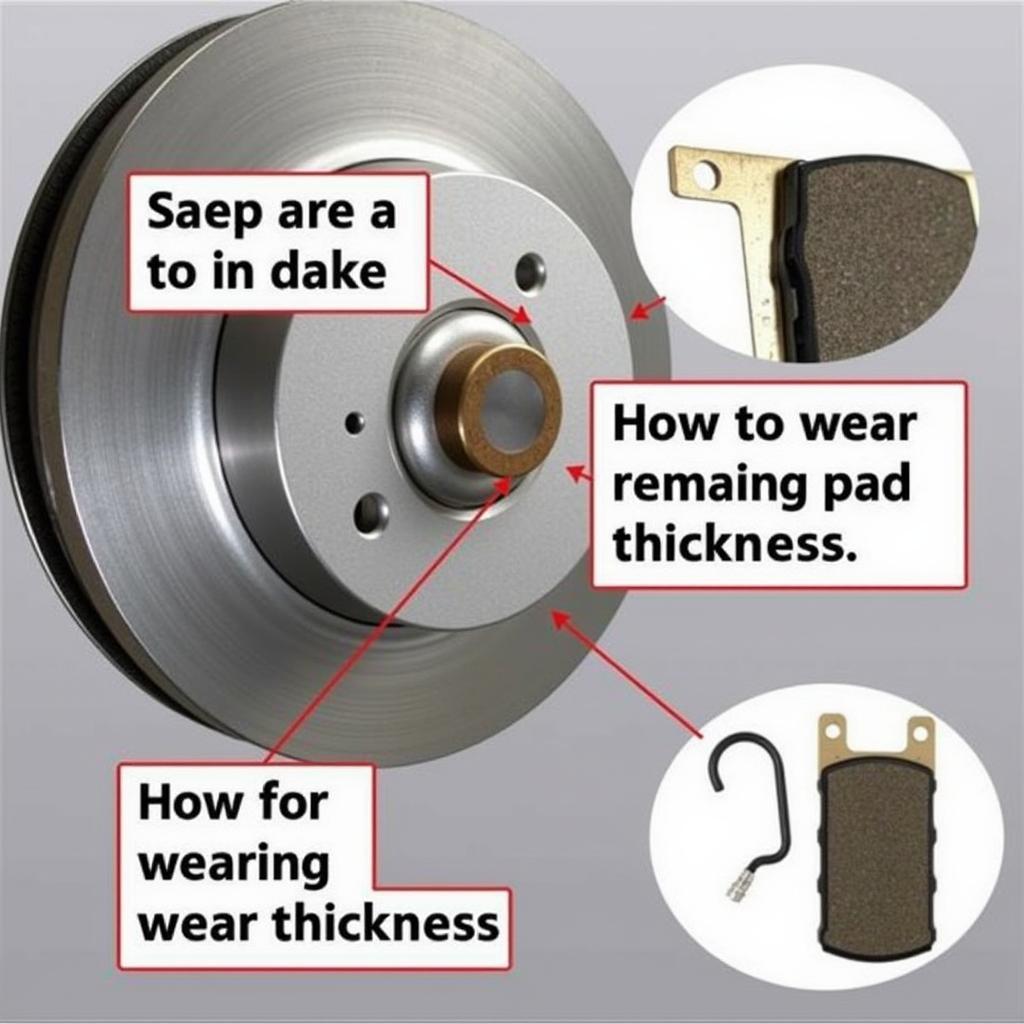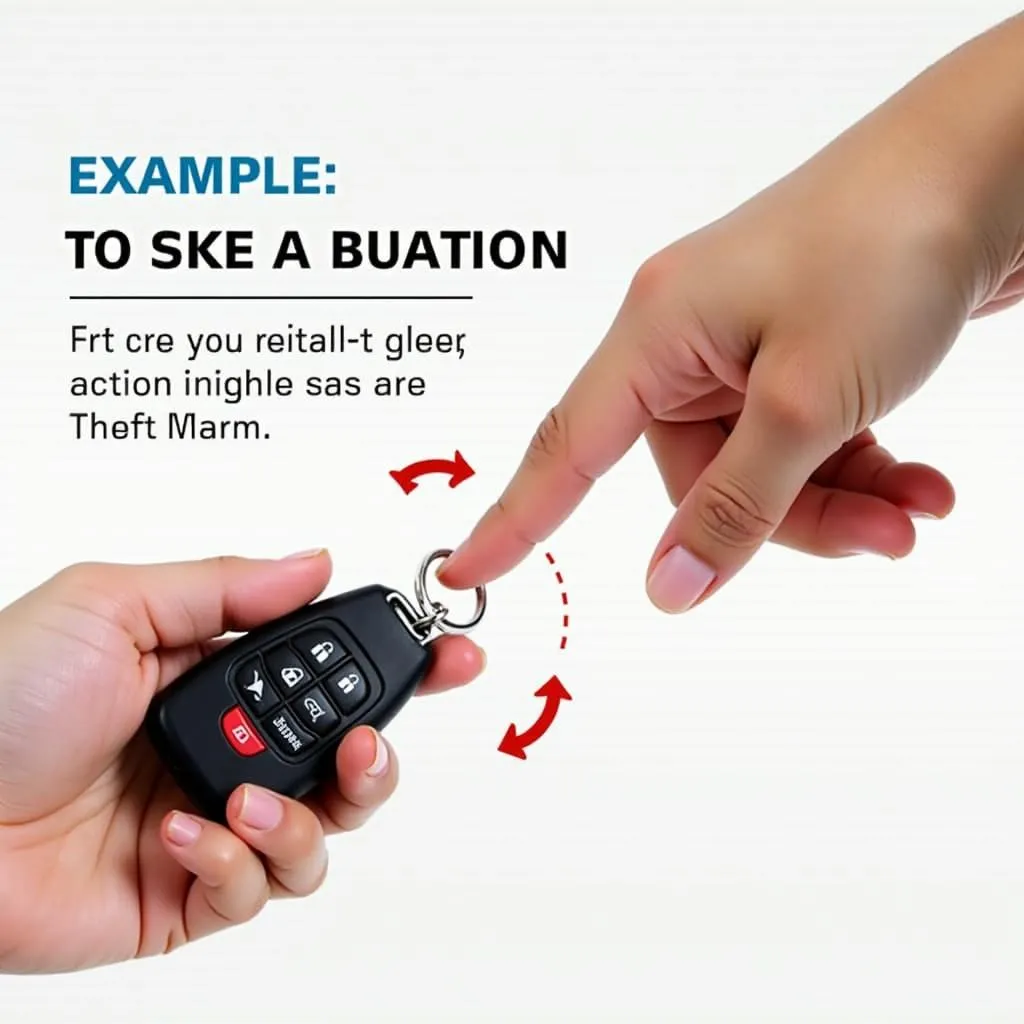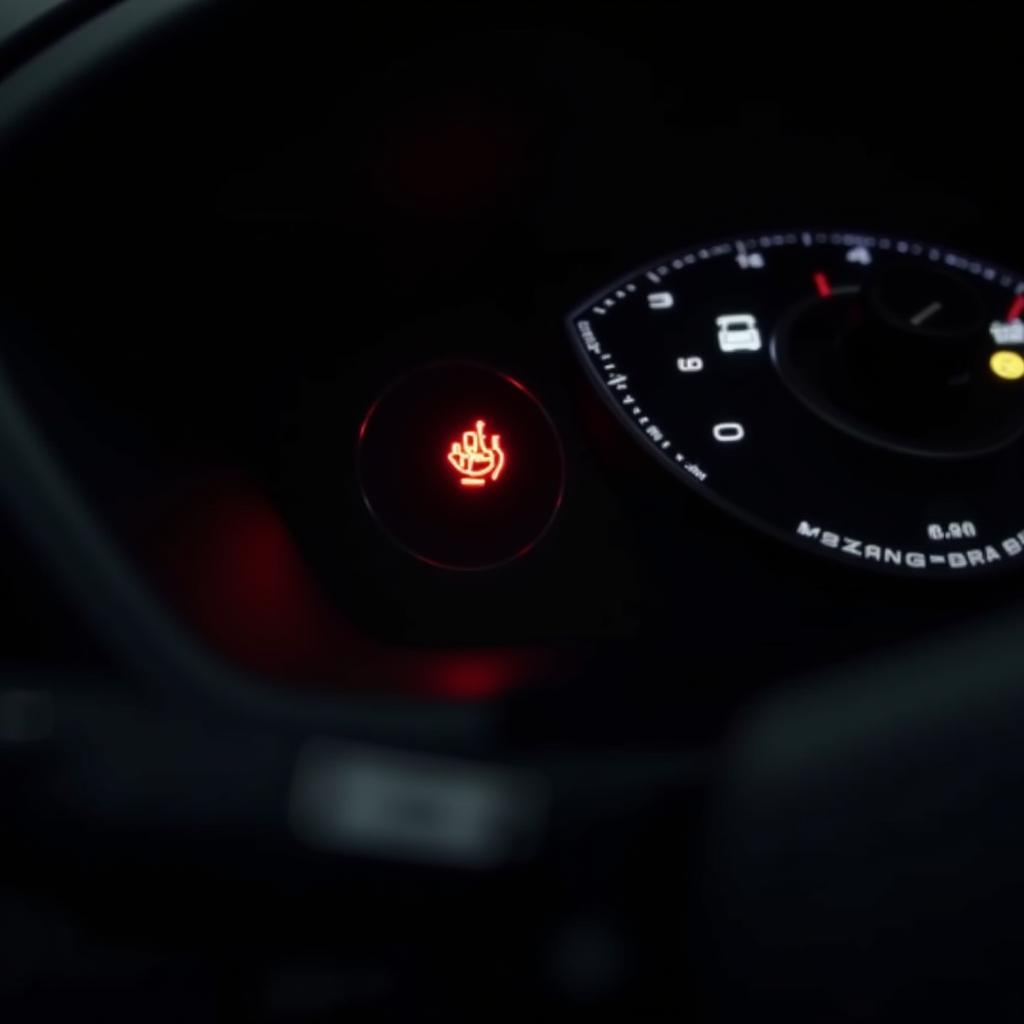The 2004 Ford Focus brake warning light can be a frustrating and concerning issue. Understanding why this light illuminates and how to address it is crucial for your safety and the longevity of your vehicle. This article provides a comprehensive guide to troubleshooting and resolving the brake warning light issue in your 2004 Ford Focus. Let’s explore the potential causes and solutions to get you back on the road safely.
Common Causes of a 2004 Ford Focus Brake Warning Light
The brake warning light in your 2004 Ford Focus can illuminate for several reasons, ranging from simple fixes to more complex problems. Understanding these potential causes can save you time and money in diagnosing the issue.
- Low Brake Fluid: This is the most common reason for the warning light. Check the brake fluid reservoir under the hood. If it’s low, it could indicate a leak or worn brake pads.
- Worn Brake Pads: Brake pads have wear indicators that trigger the warning light when they reach a certain thickness. Worn brake pads need immediate replacement to ensure safe braking performance.
- Faulty Brake Light Switch: The brake light switch is located near the brake pedal and activates the brake lights when you press the pedal. A malfunctioning switch can also trigger the brake warning light.
- ABS Issues: If your 2004 Ford Focus is equipped with Anti-lock Braking System (ABS), a problem with the system, such as a faulty sensor or low ABS fluid, can illuminate the brake warning light.
- Parking Brake Engaged: Sometimes, the simplest solution is the correct one. Make sure the parking brake is fully disengaged.
After the first few checks, you might need more in-depth diagnostics. You can find more information regarding the Ford Focus brake fluid low warning. Understanding the brake system warning light ford focus is essential.
 2004 Ford Focus Brake Fluid Reservoir Check
2004 Ford Focus Brake Fluid Reservoir Check
Troubleshooting the Brake Warning Light
Diagnosing the exact cause requires a systematic approach. Here’s a step-by-step guide to help you troubleshoot the 2004 Ford Focus brake warning light:
- Check the parking brake: Ensure the parking brake is fully released.
- Inspect brake fluid level: Look under the hood and locate the brake fluid reservoir. Check the fluid level and top it off if necessary. Be sure to use the correct type of brake fluid.
- Inspect brake pads: Visually inspect the brake pads through the wheel spokes. If they appear thin or worn, they likely need replacing.
- Test the brake light switch: Check if the brake lights are working. If not, the brake light switch might be faulty.
If the problem persists after these initial checks, you may need to consult a mechanic or utilize remote diagnostics. You can find more information about the brake system warning light ford focus 2004.
 Inspecting Brake Pads on a 2004 Ford Focus
Inspecting Brake Pads on a 2004 Ford Focus
Remote Diagnostics and Software Solutions
Modern automotive technology allows for remote diagnostics and software solutions to address various vehicle issues, including brake system problems. Specialized technicians can remotely access your vehicle’s systems to pinpoint the root cause of the brake warning light and potentially resolve it through software updates or programming.
How Remote Diagnostics Work
Remote diagnostics involve connecting a diagnostic tool to your vehicle’s OBD-II port. The tool then communicates with a remote server where a technician can analyze the data and identify the issue. Sometimes, they can resolve the issue remotely, saving you a trip to the repair shop.
This service is particularly useful for addressing software glitches or programming issues related to the ABS or other electronic brake components. Read more on the brake system warning light ford focus.
Preventing Future Brake Warning Light Issues
Regular maintenance is key to preventing future brake warning light problems. Here are some tips:
- Routine Brake Inspections: Have your brakes inspected at least once a year or as recommended by your vehicle’s maintenance schedule.
- Timely Brake Pad Replacement: Replace brake pads before they wear down completely to avoid damaging the rotors and other brake components.
- Regular Brake Fluid Flushes: Brake fluid absorbs moisture over time, which can reduce its effectiveness. Flush your brake fluid regularly to maintain optimal performance.
“Regular maintenance is crucial for any car, especially the braking system. It’s better to be proactive than reactive when it comes to your safety,” says John Miller, a certified automotive technician with over 20 years of experience.
Conclusion
The 2004 Ford Focus brake warning light shouldn’t be ignored. Understanding the potential causes and taking appropriate action can ensure your safety and prevent more costly repairs down the road. Whether it’s a simple fix like adding brake fluid or a more complex issue requiring professional attention, addressing the problem promptly is crucial. By following the troubleshooting steps outlined in this article, you can effectively address the 2004 Ford Focus brake warning light and enjoy peace of mind on the road.
FAQ
- What is the most common reason for the brake warning light to come on? Low brake fluid is the most frequent cause.
- Can I drive my car with the brake warning light on? It’s not advisable. Have the problem diagnosed and repaired as soon as possible.
- How often should I check my brake fluid? Check your brake fluid level at least once a month.
- What type of brake fluid should I use in my 2004 Ford Focus? Consult your owner’s manual for the correct brake fluid type.
- How much does it cost to replace brake pads? The cost varies depending on the type of brake pads and labor rates.
- Is it safe to replace brake pads myself? If you have mechanical experience, you can replace brake pads yourself. However, if you’re unsure, it’s best to consult a professional.
- What is remote diagnostics? Remote diagnostics allows a technician to analyze your vehicle’s systems remotely to identify issues.


